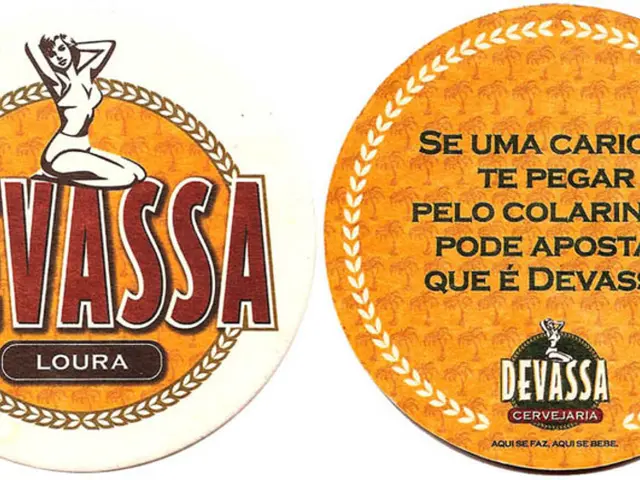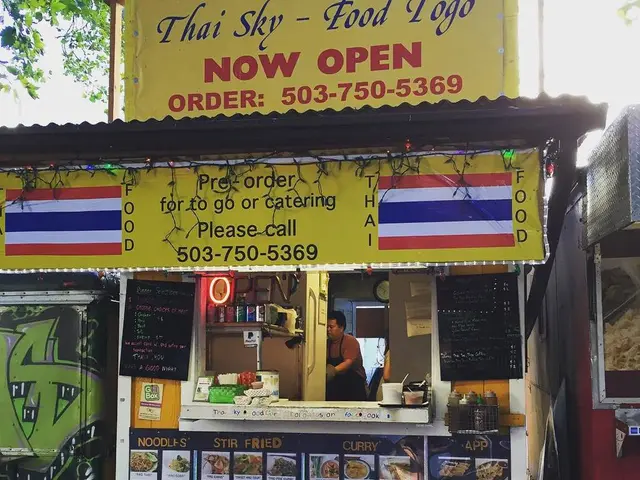Brands in the Direct-to-Consumer (DTC) sector that may garner attention in the year 2024
2023 marked a significant year for many direct-to-consumer (DTC) brands, showcasing both successes and challenges within the industry. Despite a decrease in overall deal count compared to 2021, some brands managed to successfully exit. Il Makiage, Spoiled Child parent Oddity, Birkenstock, Mielle, Great Jones, and Otherland all either held initial public offerings or were acquired.
However, the year also uncovered obstacles for several original DTC darlings. Brands like Allbirds enacted layoffs, faced a C-suite shuffle, and implemented transformation plans - including pulling back on store openings - as they strove to achieve profitability. Grove Collaborative experienced setbacks as well, with its co-founder stepping down as CEO, declining sales, and a shrinking customer base.
Unfortunately, a number of brands also fell into bankruptcy, including Hello Bello, Lunya, and the owner of Morphe.
As the new frontier in 2024 unfurls, we highlight some of the promising up-and-comers in the DTC space:
- MeritMerit, founded by Katherine Power, was established in 2021 with the mission of providing minimalist, clean, luxury products. The brand offers a variety of makeup items, such as complexion sticks, bronzer, blush, mascara, and recently, eye shadow. Power's philosophy of "five-minute makeup" is showcased through the streamlined product offerings.
Merit rapidly expanded into wholesale, launching an exclusive partnership with Sephora just one month after its debut. In 2021, the brand was available in over 500 Sephora stores across the US and Canada. The company raised $20 million in a Series A funding round led by the Growth Fund of L Catterton, with additional participation from Marcy Venture Partners and Sonoma Brands.
- RhodeCelebrity-backed brands have gained momentum recently, with over half of these brands falling within the beauty category. Rhode, launched in 2021 by Hailey Bieber, quickly grew in popularity.
Bieber explained, "My journey towards healthier skin inspired me to develop products that really work, in a way that's accessible to everyone. Rhode is dedicated to making products based in science and great formulation, simplifying many of the mysteries and complex narratives behind efficacious skincare."
Rhode boasts a remarkable growth score of 88.9 (on a scale of 100) and a substantial following of 1 million on its Instagram page. The brand's website also saw a 125% year-over-year uptick in visits as of December 2022, according to data provided to Retail Dive from SimilarWeb.
- True ClassicTrue Classic was founded in 2019 with the goal of providing men with well-fitting, affordable T-shirts. The brand has since expanded its assortment to include activewear and chino pants.
True Classic has made its apparel accessible through pop-up events with retail platform company Leap and through owned-and-operated stores. The brand aims to scale to 50 to 100 stores over the next two to four years.
- QuinceQuince was founded in 2018, with its mission being "making exceptionally high-quality essentials at a price within reach." The company uses premium materials and timeless designs but with an affordable price tag.
Quince sells a wide range of products, from cashmere sweaters to leather handbags to linen duvet covers. The company compares itself to well-known retail brands, including Everlane, J. Crew, Brooklinen, and Serena & Lily. Quince prioritizes sustainability by choosing organic materials, using environmentally-friendly packaging, and fostering ethical business practices. The company is working toward eliminating its use of virgin plastics and uses 100% compostable packaging and recyclable mailers.
Quince announced a $77 million Series B funding round in May 2023, led by Wellington Management. The brand intends to use the funding to grow its team and expand its product offerings.
- StudsStuds was founded in 2019 with the goal of modernizing the traditional "mall piercing" experience. The company uses needles for its piercings rather than piercing guns, offering a wide selection of jewelry. Studs assists consumers through the piercing process with "earscapes," utilizing ear piercings and stackings to create personalized looks.
Studs secured $20 million in Series B funding in October 2021, led by Spark Capital with additional participation from Thrive Capital, First Round Capital, and Lerer Hippeau. The brand intends to use the funding to accelerate its physical retail expansion across the US.
- Aura BoraAura Bora was launched in January 2020, offering sparkling water infused with herbs, fruits, and flowers. The brand's products are calorie-free, sugar-free, and sodium-free, using natural ingredients.
Aura Bora's flavors include Cactus Rose, Lavender Cucumber, and Strawberry Basil, providing alternatives to the traditionally mediocre flavors with artificial ingredients in the soda aisle. The brand’s unique flavor combinations and eco-friendly packaging help it stand out in crowded markets.
- Made InMade In was founded in 2017, with its roots in a family-owned restaurant supply business. The brand sells cookware in various materials, including stainless clad, nonstick, enameled cast iron, and copper.
Made In has expanded its distribution channels by opening stores of its own, beginning with two locations in Austin, Texas. The brand prides itself on combining traditional craftsmanship with professional chef expertise to create modern, heirloom-quality products.
- DropletteDroplette launched in early 2021, developing a device that delivers a micro-mist of skincare products deep into the skin. The company was founded by Madhavi Gavini and Rathi Srinivas, two MIT-trained scientists.
Droplette expanded its assortment in May 2023, launching the second generation of its skincare device, the Droplette 2. The new product features hardware updates as well as an improved mobile app experience. The company has raised $21 million in Series B funding, led by Spark Capital and Visible Ventures. Although the brand is currently only available on its website, it is considering retail partnerships in the near future.
- The success of Merit, founded by Katherine Power, is evident in its streamlined products, exclusive Sephora partnership, and Series A funding of $20 million.
- Rhode, launched by Hailey Bieber, has garnered popularity for its science-based skincare products, remarkable growth score, and significant Instagram following.
- True Classic, established in 2019, expand its apparel offerings beyond T-shirts into activewear and chino pants, aiming to scale to 50 to 100 stores.
- Quince, founded in 2018, offers high-quality essentials at affordable prices, prioritizing sustainability and growing its team with a $77 million Series B funding round.
- Studs, modernizing the traditional piercing experience, secured $20 million in Series B funding, planning to accelerate its physical retail expansion.
- Aura Bora stands out in crowded markets with its unique flavors and eco-friendly packaging in the sparkling water industry.
- Made In, originating from a family-owned restaurant supply business, sells cookware and opened stores of its own, combining traditional craftsmanship with professional chef expertise.
- Droplette, developed by MIT-trained scientists, improves skincare efficiency by delivering micro-mist of products deep into the skin, and is considering retail partnerships in the near future.
- The entertainment industry is not immune to the challenges faced by DTC brands, as warring firms sign titanic TV deals, with Netflix spending $17 billion on content in 2022.
- In the realm of technology and business, artificial intelligence (AI) ventures continue to gain traction, with updates in AI policy and advancements in health technology, promising a promising future for various markets. The lifestyle update in 2024 also introduces the digital transformation of various industries, including healthcare, with the help of technology and science.








